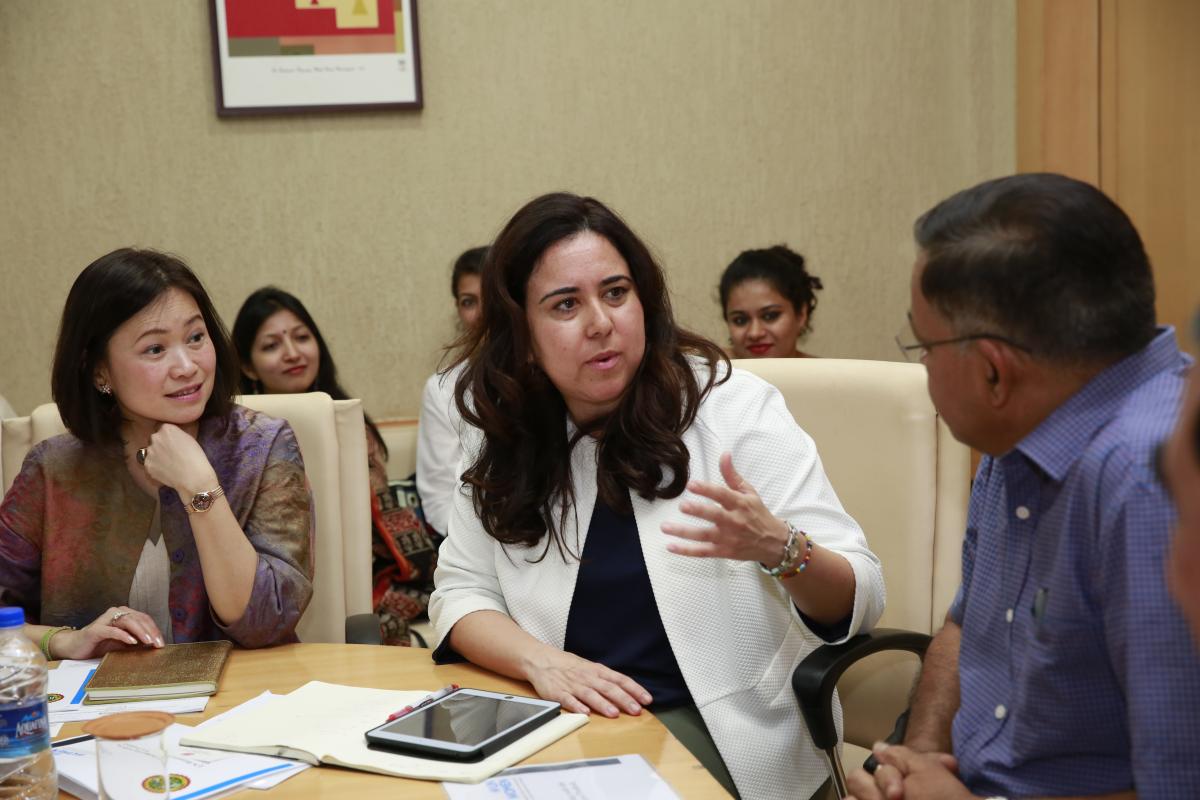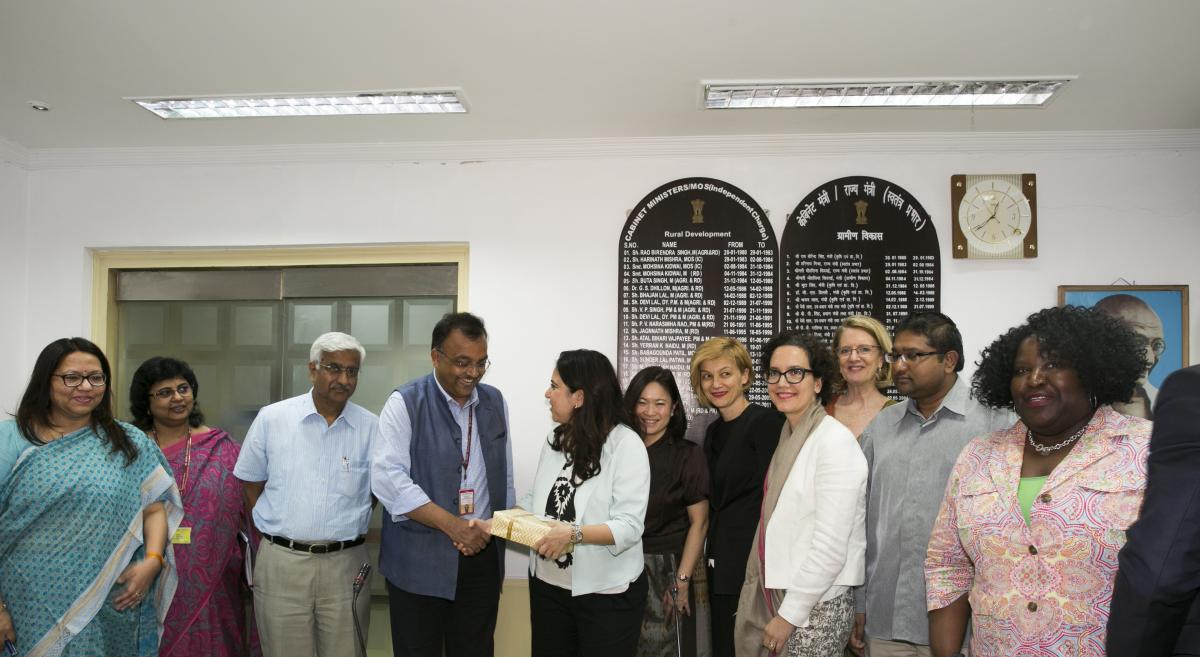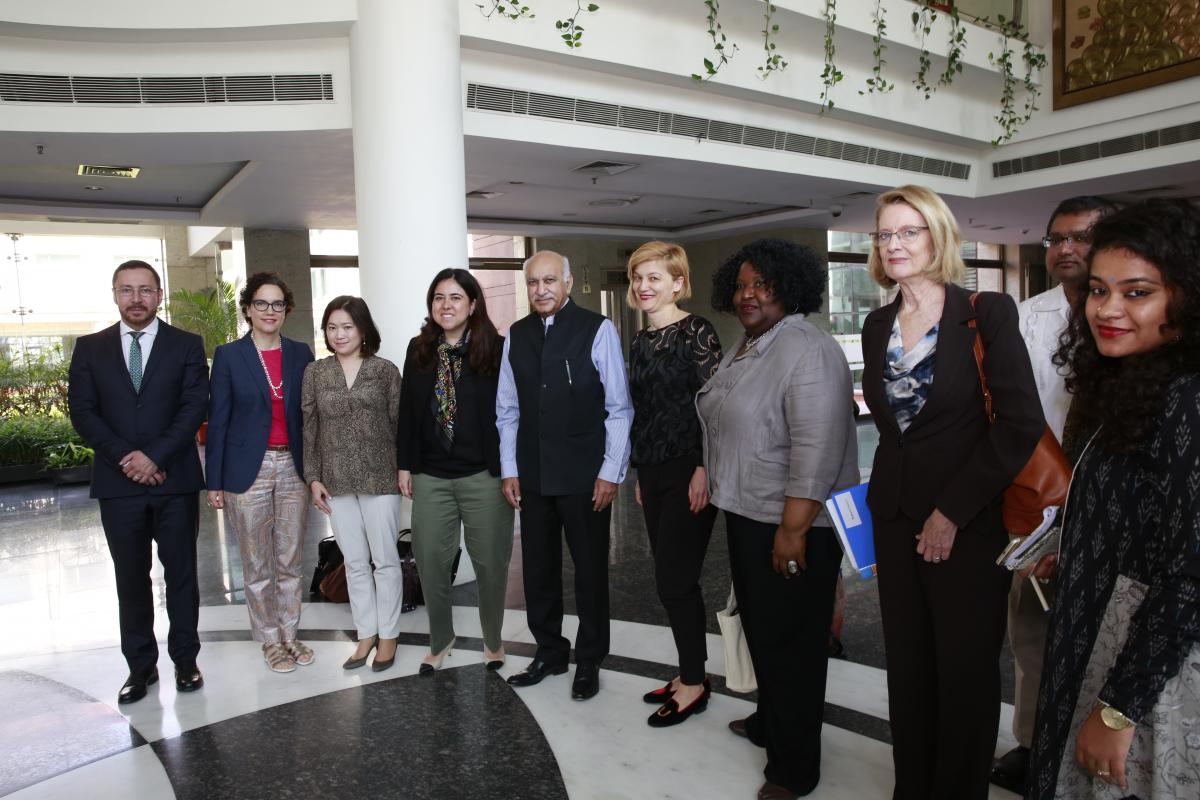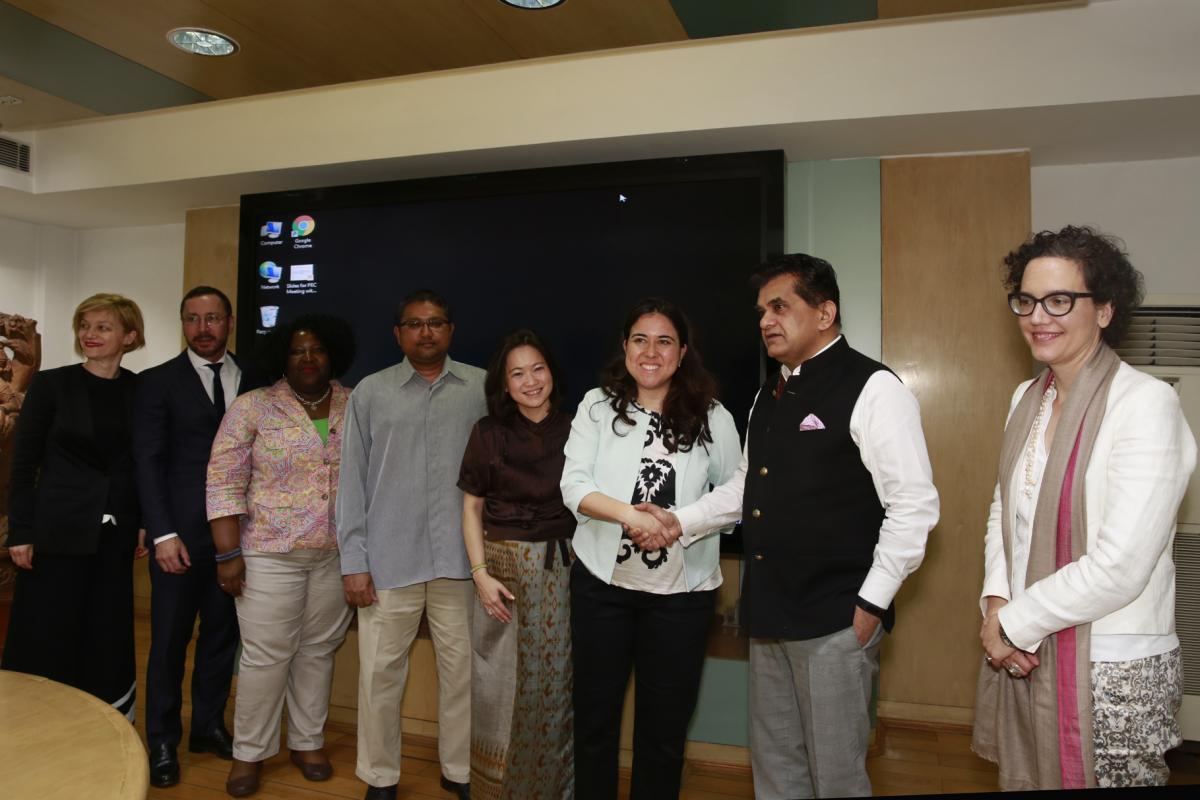NEW DELHI – Her Excellency Lana Nusseibeh, Ambassador and Permanent Representative of the United Arab Emirates to the United Nations in New York, completed a three-day field visit to New Delhi, India on 26 April, in her capacity as the President of the UN-Women Executive Board for 2017. She was accompanied by the Vice Presidents of the Executive Board, from Guyana, Liberia, Montenegro, and Switzerland. The purpose of the mission was for the Executive Board to assess the contributions of UN-Women and the UN system on the ground – and their effectiveness in supporting the implementation of the national priorities of the Government of India.
During the visit, Ambassador Nusseibeh and the Vice Presidents engaged with

several members of the Indian government, as well as civil society partners and the media. Official engagements included meetings with the Minister of Women and Child Development, H.E. Maneka Gandhi, and the Minister of State of External Affairs, H.E. M. J. Akbar, as well as the Secretaries of the Ministry of Rural Development and Ministry of Panchayati Raj, where the group learned about India’s political commitment to promoting gender equality in its domestic and national policy frameworks. They also exchanged views with the Chief Executive Officer of the National Institute for Transforming India (NITI Aayog), Mr. Amitabh Kant, and the Chairperson of the National Commission for Women, Ms. Lalita Kumaramangalam, as well as representatives of the Centre for UN Peacekeeping and Rapid Action Force, who briefed the Executive Board on mainstreaming gender throughout Indian institutions, in particular the military. India is one of the largest troop contributing countries to peacekeeping operations in the world.

“We are grateful to the government of India for providing us with numerous opportunities to engage with UN agencies and government partners on the ground. India is an essential component of the multilateral system and an important contributor to multilateral issues from peace and security to the global economy and development. India is a champion of women’s empowerment, and the high level of political commitment to this issue across the Indian government was evident at every level of our engagement. Delhi hosts 25 UN agencies, and during our trip, board members witnessed good UN inter-agency cooperation and the significant contribution of UN-Women in giving a gender lens to the UN sustainable development framework here in India,” Ambassador Nusseibeh noted.
She highlighted how UN-Women has reduced the gap between policy building and operational elements of sustainable

development work by interacting with government partners on norm setting, while simultaneously responding to immediate needs on the ground. The Executive Board was introduced to ground-breaking projects carried out in partnership with the Indian government, including UN-Women’s community-based program, ‘Safe Cities’, which seeks to build safe and inclusive cities for women and girls, as well as training programs for women leaders at the community level in partnership with the Ministry of Panchayati Raj. “The UN Women flagship program on energy in partnership with the Ministry of New and Renewable Energy provides a new model for government-UN collaboration to other countries around the world”, Ambassador Nusseibeh added.

As part of the visit, the delegation also met with government and civil society partners in the state of Madhya Pradesh.
The trip was preceded by a Joint-Executive Board field visit to Nepal, where the group observed the regional w
ork of UN-Women and its joint efforts with other UN agencies in the country.
Upon returning to New York, Ambassador Nusseibeh and the Vice Presidents will debrief the leadership of UN-Women on the outcomes of the mission, as well as present a report to the UN-Women Executive Board during its second Regular Session later this year.
